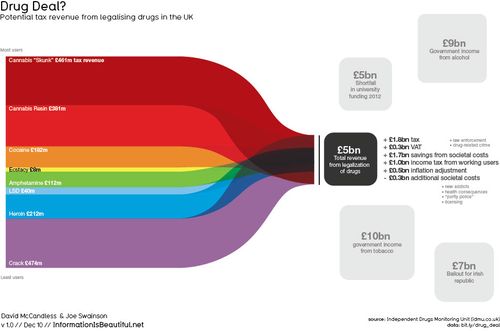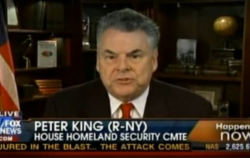Law Enforcement Against Prohibition (LEAP).
Prohibition has never worked, as proven throughout history.
Around the world many judges, lawyers, officers from the police, customs, and intelligence organisations, as well as many other experts, are challenging the failed concept of the “war on drugs”. This policy, in place for decades now in many countries despite its manifest, abject and repeated failure, criminalises great swathes of our populations, causes health problems, social problems and untold suffering, and funds organised crime and terrorist groups, rather than providing potentially enormous tax revenue to the state.
It is time for a mature, calm debate about the issue, rather than hysterical, tabloid headlines.
I am honoured to be one of this group speaking out.
LEAP Statement of Principles
1. LEAP does not promote the use of drugs and is deeply concerned about the extent of drug abuse worldwide. LEAP is also deeply concerned with the destructive impact of violent drug gangs and cartels everywhere in the world. Neither problem is remedied by the current policy of drug prohibition. Indeed, drug abuse and gang violence flourish in a drug prohibition environment, just as they did during alcohol prohibition.
2. LEAP advocates the elimination of the policy of drug prohibition and the inauguration of a replacement policy of drug control and regulation, including regulations imposing appropriate age restrictions on drug sales and use, just as there are age restrictions on marriage, signing contracts, alcohol, tobacco, operating vehicles and heavy equipment, voting and so on.
3. LEAP believes that adult drug abuse is a health problem and not a law-enforcement matter, provided that the abuse does not harm other people or the property of others.
4. LEAP believes that adult drug use, however dangerous, is a matter of personal freedom as long as it does not impinge on the freedom or safety of others.
5. LEAP speakers come from a wide divergence of political thought and social conscience and recognize that in a post-prohibition world it will take time to strike a proper regulatory balance, blending private, public and medical models to best control and regulate “illicit drugs.” LEAP speakers are free to advocate their view of better post-prohibition stratagems without toeing a LEAP “party line.”
6. LEAP recognizes that even in a post-prohibition world, still, drugs can be dangerous and potentially addictive, requiring appropriate regulation and control. Even in a free-market economy, reasonable regulation for the purposes of public health is a long-standing, accepted principle. Such regulation must not allow casual, unfettered or indiscriminate drug sales.
7. LEAP believes that government has a public health obligation to accurately ascertain the risks associated with the use of each “illicit drug” and a duty to clearly communicate that information to the public by means of labeling and warnings similar to what is done regarding food, tobacco, alcohol and medicine.
8. LEAP believes that an inordinate number of people have been misguidedly incarcerated for violation of zero-tolerant, nonviolent, consensual “drug crimes.” The end of drug prohibition will allow those persons to be promptly released, to have their record of conviction expunged, and their civil rights completely restored. However, the repeal of drug prohibition does not imply the exoneration from charges for connected offenses, such as violent crimes, gun crimes, theft, or driving under the influence of drugs. Furthermore, LEAP believes that people using alcohol or other drugs must be held accountable for any misbehavior, which harms other people or property of others, while under the influence of mind-altering substances.
9. LEAP believes that persons suffering from drug abuse afflictions and addiction, who want help, should be provided with a variety of help, including drug treatment and drug maintenance, even for uninsured addicts. LEAP believes that with an end to drug prohibition and regained control of criminal justice expenditures, a fraction of those savings would be more than sufficient to pay for expanded addiction services.
10. LEAP recognizes that different “illicit drugs” pose differing risks of harm. As such, in a post-prohibition world, LEAP recognizes that an appropriate set of regulations and control for one substance may not be a suitable or sufficient regulation and control for another substance. LEAP believes that the nation states of the world and various states within the United States must be given the regulatory latitude to try new models that wisely balance the notions of freedom over one’s own body with the need for common sense regulation of drugs to reduce death, disease, addiction and harm.













